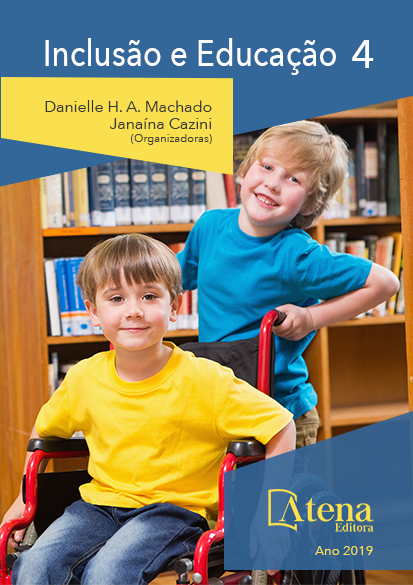
Ler, jogar e escrever: Sinalizando estratégias para ensinar Língua portuguesa para surdos
Este artigo procura discutir algumas
estratégias que possibilitam o aprendizado da
Língua Portuguesa para surdos como segunda
língua (L2) em uma perspectiva bilíngue,
considerando a Libras como sendo a primeira
língua (L1) da pessoa surda. Apontamos o
jogo como um recurso eficiente para ensinar
a Língua portuguesa a partir de estratégias
visuais e propondo traçar saberes entre os
alunos e o professor regente que se apresenta
como mediador deste processo. Através do
jogo, os estudantes surdos desenvolvem a
linguagem e a criatividade possibilitando o
encontro e a troca com o grupo social com
o qual convivem. A aprendizagem consiste
no processo do jogo e não no produto final
da atividade. Citamos Vygotsky (2014) para
abordar a aprendizagem e a mediação
semiótica como elemento necessário no jogo
e no processo de leitura e escrita do sujeito
surdo. Nos apoiamos em Lacerda (2014) para
compreender os processos da educação com
bilinguismo para surdos, utilizaremos Vygotsky
(1988) para discutir o processo da linguagem a
partir do ato de brincar e como essa temática é
abordada sob a perspectiva de outros autores.
Por fim, relatamos alguns jogos utilizados por
uma das autoras deste artigo ao aplicar jogos
em uma escola da prefeitura de Niterói. Como
resultado, os alunos surdos, inicialmente, sem
a proficiência em Libras, conseguiram adquirir
e/ou aprender a Libras mesmo com idade
considerada avançada segundo a teoria de
aquisição de linguagem, aumentaram o desejo
pela a leitura e conseguiram produzir textos
próximos a sintaxe da Língua de Sinais.
Ler, jogar e escrever: Sinalizando estratégias para ensinar Língua portuguesa para surdos
-
DOI: 10.22533/at.ed.32219150110
-
Palavras-chave: Libras, Língua Portuguesa como L2, Jogos, Surdez
-
Keywords: Pounds, Portuguese Language as L2, games, Deafness.
-
Abstract:
This article seeks to discuss some
strategies that make learning the Portuguese
Language to the deaf as a second language
(L2) in a bilingual perspective, considering the
Pounds as the first language (L1) of the deaf
person. Point the game as an efficient resource to teach the Portuguese language from
Visual strategies and proposing draw knowledge between the students and the Regent’s
professor who introduces himself as a mediator of this process. Through the game, the
deaf students develop language and creativity allowing the encounter and exchange
with the social group with which to live. The learning is in the process of the game and
not the final product of the activity. Quote Vygotsky (2014) to address the learning
and the semiotic mediation as a necessary element in the game and in the process
of reading and writing of the deaf guy. We lean in Lacerda (2014) to understand the
processes of education with bilingualism for the deaf use Vygotsky (1988) to discuss
the process of language from the Act of play and how this subject is discussed from the
perspective of other authors. Finally, we report some games used by one of the authors
of this article to apply games in a school in the city of Niterói. As a result, deaf students,
initially without proficiency in Pounds, managed to purchase and/or learn the Pounds
even with age considered advanced theory of language acquisition, increased desire
for reading and managed to produce texts next sign language syntax.
-
Número de páginas: 15
- Mariana Gonçalves Ferreira de Castro
- Celeste Azulay Kelman
- Maria Vitória Campos Mamede Maia


